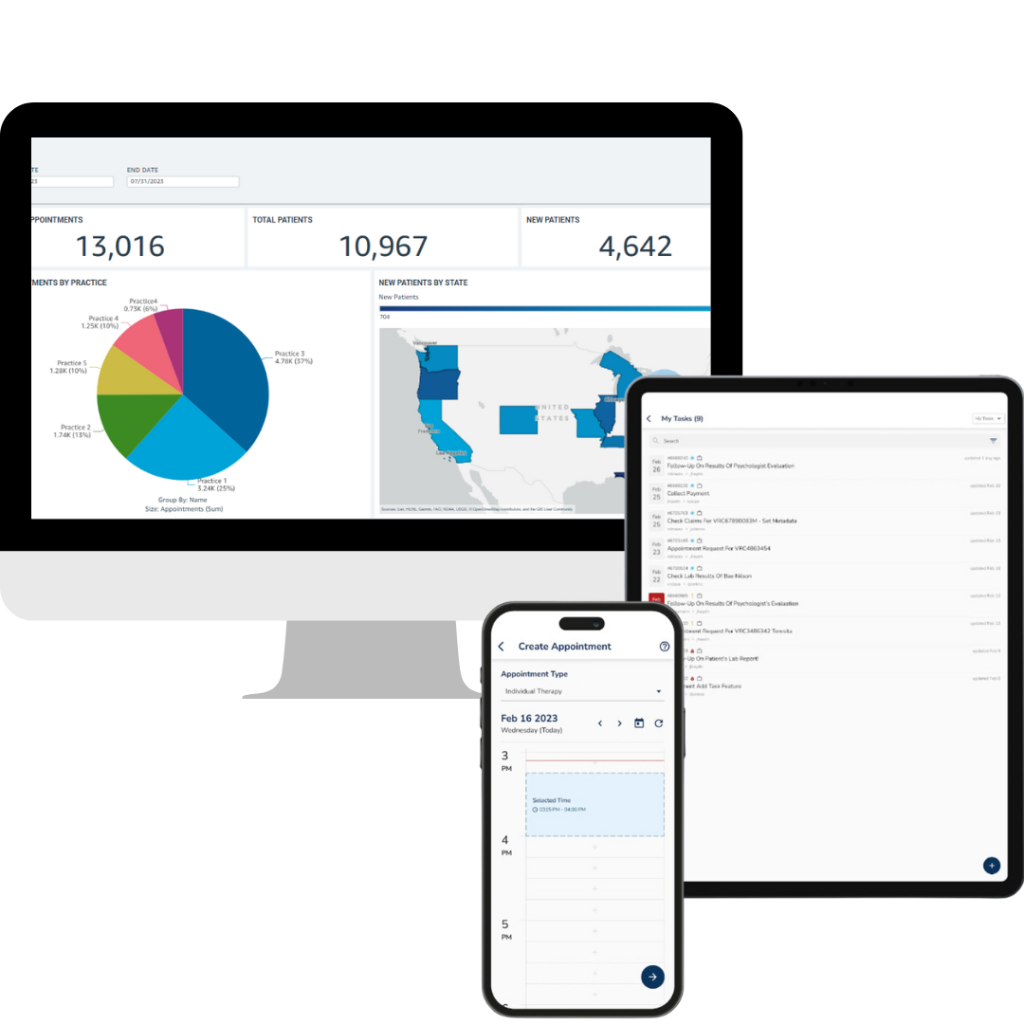
Navigating through the complexities of institutional billing can be daunting. Incorrect or delayed billing can lead to a loss of revenue, damaged relationships with patients, and a breakdown in operations.
That’s where we come in. ClinicMind is your dedicated partner, simplifying the billing process through comprehensive, efficient, and reliable services.
Our broad range of services includes claims processing, billing, and reimbursement services for approved hospitals, psychiatric hospitals, medical care clinics, and other healthcare facilities. Our advanced systems not only take the hassle out of billing management but also reduce costs, bolster revenue, and allow you to focus on what you do best – quality service provision and business growth.
At ClinicMind, we believe in developing true partnerships with our clients, defined by mutual growth and success. That is why we stand by our commitment to providing exceptional customer service.
Experience a seamless billing process tailored to your institution’s requirements at ClinicMind – where accuracy meets efficiency. Let’s revolutionize your billing together!
Medical institutional billing refers to the process by which healthcare institutions such as hospitals, clinics, nursing facilities, and other provider facilities bill and receive payment for the medical services and treatments they have provided to patients. This process is distinct from professional billing, which is used for billing services provided by individual health care professionals like physicians, therapists, or nurse practitioners. Institutional billing typically involves submitting claims to insurance companies, including Medicare and Medicaid, as well as to patients for the portion of the charges they are responsible for.
While professional billing often uses the CMS-1500 claim form, institutional billing typically uses the UB-04 (CMS-1450) claim form. This form is designed to accommodate the greater complexity and variability of institutional billing.
Just like in professional billing, correct medical coding is crucial in institutional billing to ensure the services are described accurately. This includes ICD (International Classification of Diseases) codes for diagnoses, CPT (Current Procedural Terminology) codes for procedures, and HCPCS (Healthcare Common Procedure Coding System) codes for other services and equipment.
Claims are typically submitted electronically through a system that adheres to the HIPAA 837 institutional format. This is the electronic equivalent of the UB-04 form.
Once a claim is submitted, payment posting involves recording the payments and reconciling them with the billed amounts. This step may also require follow-up for denied claims or underpayments.
Healthcare providers often have contracts with insurers that stipulate specific rates for services. Adjustments are made on the bill to reconcile the difference between the standard charge and the contracted rate.
The UB-04 form includes revenue codes that identify specific departments or services within the institution, which helps specify where the service was performed and what type of service was provided.
Medical institutional billing must comply with a wide range of regulations and requirements set forth by government programs like Medicare and Medicaid, as well as by private insurance payers. Compliance is critical to avoid fraud and abuse penalties.
The billing process involves interaction with third-party payers. The billing staff must be familiar with various insurance plans and payer-specific guidelines to properly submit claims.
After the insurance has paid their portion, the healthcare institution may bill the patient for any remaining balance, which can include deductibles, copayments, or any services not covered by the insurance.
This site includes cumulative user rating numbers, video testimonials, press releases, and other social proof materials across all brands and all resellers leveraging ClinicMind Software and/or Service as a Platform (SaaP). For more detail about our white labeling and reselling models, visit our About Page or Contact Us directly. Check Privacy Policy